Viernes
Eventos economicos
PMI manufacturero
PMI Manufacturing Index Flash
[Report][djStar]9:45 AM ET
Viernes 21/08/15 PMI manufacturero
60 mensajes
• Página 1 de 4 • 1, 2, 3, 4
Re: Viernes 21/08/15 PMI manufacturero
Futures10:55 PM EDT 8/20/2015
LAST CHANGE % CHG
Crude Oil 40.94 0.14 0.34%
Brent Crude 46.02 -0.60 -1.29%
Gold 1163.4 10.2 0.88%
Silver 15.600 0.038 0.24%
E-mini DJIA 16793 -124 -0.73%
E-mini S&P 500 2011.50 -13.90 -0.69%
LAST CHANGE % CHG
Crude Oil 40.94 0.14 0.34%
Brent Crude 46.02 -0.60 -1.29%
Gold 1163.4 10.2 0.88%
Silver 15.600 0.038 0.24%
E-mini DJIA 16793 -124 -0.73%
E-mini S&P 500 2011.50 -13.90 -0.69%
- admin
- Site Admin
- Mensajes: 165586
- Registrado: Mié Abr 21, 2010 9:02 pm
Re: Viernes 21/08/15 PMI manufacturero
Currencies11:04 PM EDT 8/20/2015
LAST(MID) CHANGE
Euro (EUR/USD) 1.1286 0.0045
Yen (USD/JPY) 122.89 -0.52
Pound (GBP/USD) 1.5691 0.0001
Australia $ (AUD/USD) 0.7305 -0.0031
Swiss Franc (USD/CHF) 0.9564 -0.0021
WSJ Dollar Index 88.19 -0.13
LAST(MID) CHANGE
Euro (EUR/USD) 1.1286 0.0045
Yen (USD/JPY) 122.89 -0.52
Pound (GBP/USD) 1.5691 0.0001
Australia $ (AUD/USD) 0.7305 -0.0031
Swiss Franc (USD/CHF) 0.9564 -0.0021
WSJ Dollar Index 88.19 -0.13
- admin
- Site Admin
- Mensajes: 165586
- Registrado: Mié Abr 21, 2010 9:02 pm
Re: Viernes 21/08/15 PMI manufacturero
PRICE CHG YIELD
U.S. 10 Year 2/32 2.061
German 10 Year 11/32 0.586
Japan 10 Year -1/32 0.363
U.S. 10 Year 2/32 2.061
German 10 Year 11/32 0.586
Japan 10 Year -1/32 0.363
- admin
- Site Admin
- Mensajes: 165586
- Registrado: Mié Abr 21, 2010 9:02 pm
Re: Viernes 21/08/15 PMI manufacturero
LAST CHANGE % CHG
Get index data by Email
Japan: Nikkei 225 19612.93 -420.59 -2.10%
Hang Seng 22268.81 -488.66 -2.15%
Shanghai Composite 3603.02 -61.27 -1.67%
S&P BSE Sensex 27607.82 -323.82 -1.16%
Australia: S&P/ASX 5180.20 -108.40 -2.05%
UK: FTSE 100 6367.89 -35.56 -0.56%
DJIA 16990.69 -358.04 -2.06%
Asia Dow 2821.71 -58.73 -2.04%
Global Dow 2429.59 -3.65 -0.15%
Get index data by Email
Japan: Nikkei 225 19612.93 -420.59 -2.10%
Hang Seng 22268.81 -488.66 -2.15%
Shanghai Composite 3603.02 -61.27 -1.67%
S&P BSE Sensex 27607.82 -323.82 -1.16%
Australia: S&P/ASX 5180.20 -108.40 -2.05%
UK: FTSE 100 6367.89 -35.56 -0.56%
DJIA 16990.69 -358.04 -2.06%
Asia Dow 2821.71 -58.73 -2.04%
Global Dow 2429.59 -3.65 -0.15%
- admin
- Site Admin
- Mensajes: 165586
- Registrado: Mié Abr 21, 2010 9:02 pm
Re: Viernes 21/08/15 PMI manufacturero
Copper August 20,22:59
Bid/Ask 2.3029 - 2.3036
Change -0.0045 -0.20%
Low/High 2.2990 - 2.3206
Charts
Nickel August 20,22:59
Bid/Ask 4.6644 - 4.6712
Change +0.0068 +0.15%
Low/High 4.6508 - 4.6894
Charts
Aluminum August 20,22:59
Bid/Ask 0.7003 - 0.7006
Change +0.0039 +0.55%
Low/High 0.6967 - 0.7037
Charts
Zinc August 20,22:59
Bid/Ask 0.8184 - 0.8193
Change -0.0002 -0.03%
Low/High 0.8172 - 0.8220
Charts
Lead August 20,22:54
Bid/Ask 0.7695 - 0.7716
Change +0.0002 +0.03%
Low/High 0.7673 - 0.7741
Bid/Ask 2.3029 - 2.3036
Change -0.0045 -0.20%
Low/High 2.2990 - 2.3206
Charts
Nickel August 20,22:59
Bid/Ask 4.6644 - 4.6712
Change +0.0068 +0.15%
Low/High 4.6508 - 4.6894
Charts
Aluminum August 20,22:59
Bid/Ask 0.7003 - 0.7006
Change +0.0039 +0.55%
Low/High 0.6967 - 0.7037
Charts
Zinc August 20,22:59
Bid/Ask 0.8184 - 0.8193
Change -0.0002 -0.03%
Low/High 0.8172 - 0.8220
Charts
Lead August 20,22:54
Bid/Ask 0.7695 - 0.7716
Change +0.0002 +0.03%
Low/High 0.7673 - 0.7741
- admin
- Site Admin
- Mensajes: 165586
- Registrado: Mié Abr 21, 2010 9:02 pm
Re: Viernes 21/08/15 PMI manufacturero
PMI preliminar de sector manufacturero de China se contrae a su mayor ritmo en seis años y medio
jueves 20 de agosto de 2015 22:20 GYT Imprimir [-] Texto [+]
PEKÍN (Reuters) - La actividad del sector manufacturero de China se contrajo en agosto a su mayor ritmo en casi seis años y medio, debido a la debilidad de la demanda doméstica y de las exportaciones, mostró un sondeo privado, lo que aumentó los temores de una fuerte desaceleración en la segunda mayor economía mundial.
El Índice preliminar de Gerentes de Compra (PMI) del sector manufacturero de China elaborado por Caixin/Markit cayó a 47,1 puntos en agosto, muy por debajo de la estimación promedio de un sondeo de Reuters de 47,7 e inferior a los 47,8 puntos del PMI final de julio.
La cifra fue la más baja desde marzo del 2009, durante la crisis financiera global, y la sexta consecutiva por debajo del nivel de 50 puntos, que separa al crecimiento en la actividad de la contracción según una base mensual.
El PMI preliminar, la primera cifra que se entrega sobre China cada mes, es seguido de cerca por los inversores globales en búsqueda de claves sobre cómo se desempeña la economía.
Los detalles del sondeo sobre actividad mostraron que las condiciones están empeorando en casi todas las mediciones, ya que la producción manufacturera se contrajo a cerca de un mínimo de cuatro años, las órdenes de exportaciones y domésticas cayeron a una tasa mayor que en julio y las empresas despidieron a más trabajadores.
El decepcionante PMI preliminar de agosto es un mal presagio para los próximos datos oficiales, y podría fomentar temores de que la economía de China esté desacelerándose más rápido que lo esperado por las autoridades, golpeando a las esperanzas de una recuperación global.
Las autoridades chinas han enfrentado problemas para estabilizar al mercado bursátil del país después de que casi colapsó a inicios del verano boreal. Pekín sorprendió a los mercados financieros este mes al devaluar el yuan en casi un 2 por ciento, avivando temores sobre la salud de la economía.
El banco central dijo que la devaluación del yuan fue una decisión técnica y parte de su proceso de reforma de divisas, pero muchos inversores temen que se permita que la moneda se deprecie más en medio de las presiones para fortalecer las exportaciones, lo que potencialmente podría dar inicio a una guerra global del tipo de cambio.
(Reporte de Redacción Pekín; Editado en Español por Ricardo Figueroa)
jueves 20 de agosto de 2015 22:20 GYT Imprimir [-] Texto [+]
PEKÍN (Reuters) - La actividad del sector manufacturero de China se contrajo en agosto a su mayor ritmo en casi seis años y medio, debido a la debilidad de la demanda doméstica y de las exportaciones, mostró un sondeo privado, lo que aumentó los temores de una fuerte desaceleración en la segunda mayor economía mundial.
El Índice preliminar de Gerentes de Compra (PMI) del sector manufacturero de China elaborado por Caixin/Markit cayó a 47,1 puntos en agosto, muy por debajo de la estimación promedio de un sondeo de Reuters de 47,7 e inferior a los 47,8 puntos del PMI final de julio.
La cifra fue la más baja desde marzo del 2009, durante la crisis financiera global, y la sexta consecutiva por debajo del nivel de 50 puntos, que separa al crecimiento en la actividad de la contracción según una base mensual.
El PMI preliminar, la primera cifra que se entrega sobre China cada mes, es seguido de cerca por los inversores globales en búsqueda de claves sobre cómo se desempeña la economía.
Los detalles del sondeo sobre actividad mostraron que las condiciones están empeorando en casi todas las mediciones, ya que la producción manufacturera se contrajo a cerca de un mínimo de cuatro años, las órdenes de exportaciones y domésticas cayeron a una tasa mayor que en julio y las empresas despidieron a más trabajadores.
El decepcionante PMI preliminar de agosto es un mal presagio para los próximos datos oficiales, y podría fomentar temores de que la economía de China esté desacelerándose más rápido que lo esperado por las autoridades, golpeando a las esperanzas de una recuperación global.
Las autoridades chinas han enfrentado problemas para estabilizar al mercado bursátil del país después de que casi colapsó a inicios del verano boreal. Pekín sorprendió a los mercados financieros este mes al devaluar el yuan en casi un 2 por ciento, avivando temores sobre la salud de la economía.
El banco central dijo que la devaluación del yuan fue una decisión técnica y parte de su proceso de reforma de divisas, pero muchos inversores temen que se permita que la moneda se deprecie más en medio de las presiones para fortalecer las exportaciones, lo que potencialmente podría dar inicio a una guerra global del tipo de cambio.
(Reporte de Redacción Pekín; Editado en Español por Ricardo Figueroa)
- admin
- Site Admin
- Mensajes: 165586
- Registrado: Mié Abr 21, 2010 9:02 pm
Re: Viernes 21/08/15 PMI manufacturero
Los gráficos del día, 
.

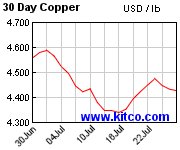
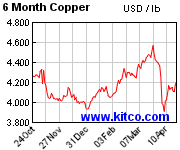
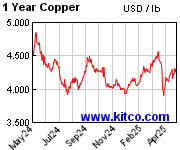
.

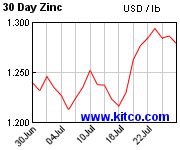
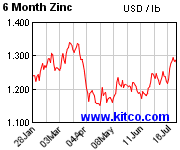
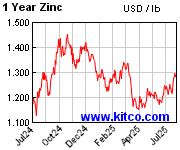
.

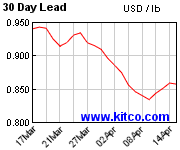
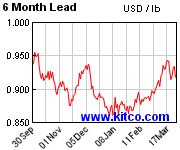
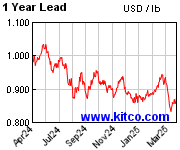
.

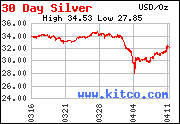
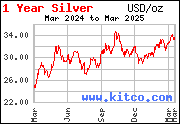
.

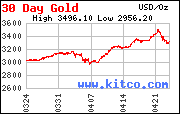
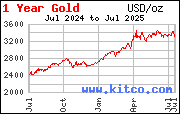
.
.




.




.




.



.



.
- Comodoro
- Mensajes: 980
- Registrado: Jue May 06, 2010 8:24 am
- Ubicación: LIMA
Re: Viernes 21/08/15 PMI manufacturero
DJIA 16762.83 -227.86 -1.34%
Nasdaq 4794.80 -82.69 -1.70%
S&P 500 2007.27 -28.46 -1.40%
Russell 2000 1160.58 -11.94 -1.02%
Global Dow 2396.78
Nasdaq 4794.80 -82.69 -1.70%
S&P 500 2007.27 -28.46 -1.40%
Russell 2000 1160.58 -11.94 -1.02%
Global Dow 2396.78
- admin
- Site Admin
- Mensajes: 165586
- Registrado: Mié Abr 21, 2010 9:02 pm
Re: Viernes 21/08/15 PMI manufacturero
otro desplome de los metales
- jonibol
- Mensajes: 2878
- Registrado: Mar Abr 27, 2010 9:51 am
Re: Viernes 21/08/15 PMI manufacturero
China es una bomba de tiempo.
Allí se está generando la próxima crisis global de proporciones.
El desplome de su bolsa es reflejo del desorden de su economía.
Allí se está generando la próxima crisis global de proporciones.
El desplome de su bolsa es reflejo del desorden de su economía.
- jonibol
- Mensajes: 2878
- Registrado: Mar Abr 27, 2010 9:51 am
Re: Viernes 21/08/15 PMI manufacturero
DJIA 16694.25 -296.44 -1.74%
Nasdaq 4777.52 -99.97 -2.05%
S&P 500 1998.85 -36.88 -1.81%
Russell 2000 1155.25 -17.28 -1.47%
Global Dow 2389.50
Nasdaq 4777.52 -99.97 -2.05%
S&P 500 1998.85 -36.88 -1.81%
Russell 2000 1155.25 -17.28 -1.47%
Global Dow 2389.50
- admin
- Site Admin
- Mensajes: 165586
- Registrado: Mié Abr 21, 2010 9:02 pm
Re: Viernes 21/08/15 PMI manufacturero
DJIA 16710.55 -280.14 -1.65%
Nasdaq 4789.23 -88.25 -1.81%
S&P 500 2002.50 -33.23 -1.63%
Russell 2000 1163.96 -8.56 -0.73%
Global Dow 2391.38
Nasdaq 4789.23 -88.25 -1.81%
S&P 500 2002.50 -33.23 -1.63%
Russell 2000 1163.96 -8.56 -0.73%
Global Dow 2391.38
- admin
- Site Admin
- Mensajes: 165586
- Registrado: Mié Abr 21, 2010 9:02 pm
Re: Viernes 21/08/15 PMI manufacturero
Crude Oil 40.14 -1.18 -2.86%
Brent Crude 45.35 -1.27 -2.72%
Gold 1158.4 5.2 0.45%
Silver 15.325 -0.237 -1.52%
E-mini DJIA 16672 -245 -1.45%
E-mini S&P 500 1998.00
Brent Crude 45.35 -1.27 -2.72%
Gold 1158.4 5.2 0.45%
Silver 15.325 -0.237 -1.52%
E-mini DJIA 16672 -245 -1.45%
E-mini S&P 500 1998.00
- admin
- Site Admin
- Mensajes: 165586
- Registrado: Mié Abr 21, 2010 9:02 pm
Re: Viernes 21/08/15 PMI manufacturero
China provoca sell off global.
---
Global Stocks Fall Further on China Worries
By
Tommy Stubbington
Updated Aug. 21, 2015 12:31 p.m. ET
A global market rout intensified Friday, pummeling stocks and commodities, as fresh evidence that China’s economy is slowing spooked investors.
Signs of a sharp slowdown in the world’s second-largest economy have unnerved investors since Beijing surprised markets last week by devaluing its currency. Shares in the U.S., Asia and Europe have tumbled along with commodity prices as investors worry about waning Chinese demand.
The S&P 500 was recently down 32 points, or 1.6%, at 2004. The Dow Jones Industrial Average declined 261 points, or 1.5%, to 16730. On Thursday, each suffered their biggest single-day percentage decline since February.
The Nasdaq Composite was 82 points lower, or 1.7%, at 4796.
“It becomes ever more evident that China’s economy is cooling off,” said Jeroen Blokland, a portfolio manager at Robeco, which manages $307 billion of assets.
The pan-European Stoxx Europe 600 ended the session 3.3% lower, closing out its biggest week of losses since August 2011. The index has now lost nearly 13% since its April peak, entering a so-called correction.
Earlier, the Shanghai Composite Index tumbled 4.3%, hitting its lowest level since March, despite Beijing’s efforts to prop up the market in recent weeks. In Japan, the Nikkei fell 2.6% to a six-week low.
An early gauge of China’s factory activity fell to a six-and-a-half year low in August, heaping further pressure on stocks and commodities after Thursday’s global selloff.
“Now we’ve had some harder evidence that China is slowing relatively fast, people have chosen to get out,” said Kiran Ganesh, a multiasset strategist at UBS Wealth Management, which oversees around $2 trillion of assets.
A surge in investor demand for assets considered safest during times of market stress sent the yield on 10-year U.S. Treasury bonds to 2.045%, its lowest level since April. Yields fall as bond prices rise.
The dollar fell by around 1% against the euro and Japan’s yen. The euro and yen have recently tended to rise during times of market stress.
Some investors and analysts say they think the tumult in the markets could complicate the Federal Reserve’s plans to raise interest rates.
“The Chinese have created an air of fragility around the globe. Markets will now surely have to firm up considerably for the Fed to pull the trigger next month,” said Deutsche Bank analyst Jim Reid.
Ultralow interest rates have fueled a big rally in stock markets since the financial crisis. On Wednesday, minutes of the Fed’s latest policy meeting showed officials were divided over when to raise rates, with some citing concerns over China’s economy as a reason to hold back.
But a delay in lifting rates may bring little comfort to investors if slowing global growth is underpinning the Fed’s caution.
Paul O’Connor, a senior fund manager at Henderson Global Investors, which manages £82 billion ($129 billion) in assets, said he has been selling stocks and buying bonds in recent months, fearing further spillover from the recent Chinese selloff.
“Is there a buying opportunity in stuff that has got beaten up, or will it start to erode confidence in developed market assets? We’re in the latter camp,” he said.
Global equities suffered $8.3 billion of outflows in the week ended Thursday, representing the worst week in almost four months, according to data from Bank of America Merrill Lynch published Friday. Losses were particularly heavy in the emerging markets and the U.S.
The recent rout in commodity markets continued Friday as fears over waning Chinese demand intensified.
Oil prices extended their recent declines. Brent crude oil, the global benchmark, fell 2.5% to around $45.48 a barrel, its lowest level since January. The U.S. benchmark fell 2.4% to $40.32.
Industrial metals prices also fell as the Chinese data reignited worries about the future pace of demand from the world’s top consumer.
The London Metal Exchange’s three-month copper contract was down 1.2% at $5,057 a metric ton in afternoon European trade. Earlier it fell to as low as $4,992.50 a ton, just $16 above Wednesday’s six-year low.
“Commodity markets are telling us this is quite serious,” said Neil Dwane, head of European equities at Allianz Global Investors, which oversees €412 billion ($463 billion) of assets.
An investor walks past monitors showing stock market movements at a brokerage house in Shanghai earlier this week. ENLARGE
An investor walks past monitors showing stock market movements at a brokerage house in Shanghai earlier this week. Photo: Agence France-Presse/Getty Images
—Chiara Albanese, Christopher Whittall, Josie Cox and Ese Erheriene contributed to this article.
Write to Tommy Stubbington at tommy.stubbington@wsj.com
---
Global Stocks Fall Further on China Worries
By
Tommy Stubbington
Updated Aug. 21, 2015 12:31 p.m. ET
A global market rout intensified Friday, pummeling stocks and commodities, as fresh evidence that China’s economy is slowing spooked investors.
Signs of a sharp slowdown in the world’s second-largest economy have unnerved investors since Beijing surprised markets last week by devaluing its currency. Shares in the U.S., Asia and Europe have tumbled along with commodity prices as investors worry about waning Chinese demand.
The S&P 500 was recently down 32 points, or 1.6%, at 2004. The Dow Jones Industrial Average declined 261 points, or 1.5%, to 16730. On Thursday, each suffered their biggest single-day percentage decline since February.
The Nasdaq Composite was 82 points lower, or 1.7%, at 4796.
“It becomes ever more evident that China’s economy is cooling off,” said Jeroen Blokland, a portfolio manager at Robeco, which manages $307 billion of assets.
The pan-European Stoxx Europe 600 ended the session 3.3% lower, closing out its biggest week of losses since August 2011. The index has now lost nearly 13% since its April peak, entering a so-called correction.
Earlier, the Shanghai Composite Index tumbled 4.3%, hitting its lowest level since March, despite Beijing’s efforts to prop up the market in recent weeks. In Japan, the Nikkei fell 2.6% to a six-week low.
An early gauge of China’s factory activity fell to a six-and-a-half year low in August, heaping further pressure on stocks and commodities after Thursday’s global selloff.
“Now we’ve had some harder evidence that China is slowing relatively fast, people have chosen to get out,” said Kiran Ganesh, a multiasset strategist at UBS Wealth Management, which oversees around $2 trillion of assets.
A surge in investor demand for assets considered safest during times of market stress sent the yield on 10-year U.S. Treasury bonds to 2.045%, its lowest level since April. Yields fall as bond prices rise.
The dollar fell by around 1% against the euro and Japan’s yen. The euro and yen have recently tended to rise during times of market stress.
Some investors and analysts say they think the tumult in the markets could complicate the Federal Reserve’s plans to raise interest rates.
“The Chinese have created an air of fragility around the globe. Markets will now surely have to firm up considerably for the Fed to pull the trigger next month,” said Deutsche Bank analyst Jim Reid.
Ultralow interest rates have fueled a big rally in stock markets since the financial crisis. On Wednesday, minutes of the Fed’s latest policy meeting showed officials were divided over when to raise rates, with some citing concerns over China’s economy as a reason to hold back.
But a delay in lifting rates may bring little comfort to investors if slowing global growth is underpinning the Fed’s caution.
Paul O’Connor, a senior fund manager at Henderson Global Investors, which manages £82 billion ($129 billion) in assets, said he has been selling stocks and buying bonds in recent months, fearing further spillover from the recent Chinese selloff.
“Is there a buying opportunity in stuff that has got beaten up, or will it start to erode confidence in developed market assets? We’re in the latter camp,” he said.
Global equities suffered $8.3 billion of outflows in the week ended Thursday, representing the worst week in almost four months, according to data from Bank of America Merrill Lynch published Friday. Losses were particularly heavy in the emerging markets and the U.S.
The recent rout in commodity markets continued Friday as fears over waning Chinese demand intensified.
Oil prices extended their recent declines. Brent crude oil, the global benchmark, fell 2.5% to around $45.48 a barrel, its lowest level since January. The U.S. benchmark fell 2.4% to $40.32.
Industrial metals prices also fell as the Chinese data reignited worries about the future pace of demand from the world’s top consumer.
The London Metal Exchange’s three-month copper contract was down 1.2% at $5,057 a metric ton in afternoon European trade. Earlier it fell to as low as $4,992.50 a ton, just $16 above Wednesday’s six-year low.
“Commodity markets are telling us this is quite serious,” said Neil Dwane, head of European equities at Allianz Global Investors, which oversees €412 billion ($463 billion) of assets.
An investor walks past monitors showing stock market movements at a brokerage house in Shanghai earlier this week. ENLARGE
An investor walks past monitors showing stock market movements at a brokerage house in Shanghai earlier this week. Photo: Agence France-Presse/Getty Images
—Chiara Albanese, Christopher Whittall, Josie Cox and Ese Erheriene contributed to this article.
Write to Tommy Stubbington at tommy.stubbington@wsj.com
- admin
- Site Admin
- Mensajes: 165586
- Registrado: Mié Abr 21, 2010 9:02 pm
60 mensajes
• Página 1 de 4 • 1, 2, 3, 4
¿Quién está conectado?
Usuarios navegando por este Foro: No hay usuarios registrados visitando el Foro y 31 invitados
